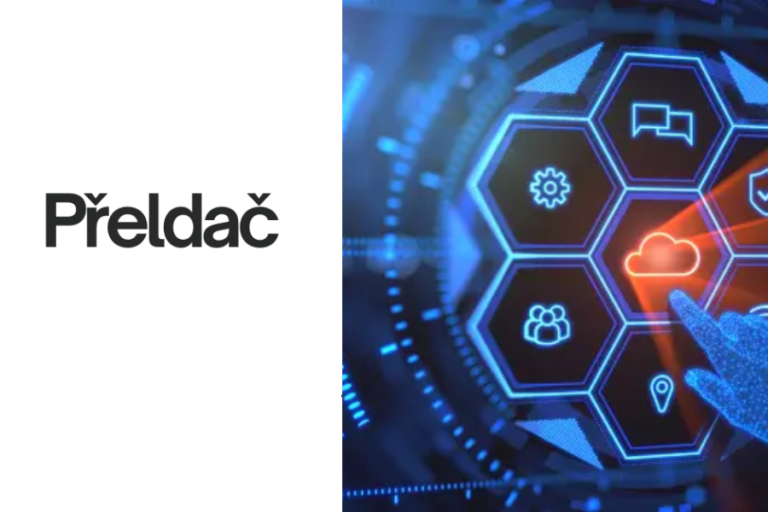Understanding TheJavaSea.me Leaks AIO-TLP: How to Protect Yourself and Your Data
Introduction
In today’s digital age, content-sharing platforms are growing in popularity, but so too are the risks of data breaches. The recent “TheJavaSea.me leaks AIO-TLP” event has raised alarm bells, particularly for users who may not fully understand the implications of such breaches. If you’re unfamiliar with these terms or worried about your online security, this article is for you. Let’s dive into the details of TheJavaSea.me, explore the nature of AIO-TLP leaks, and understand how to safeguard your data from potential threats.
What is TheJavaSea.me Leaks AIO-TLP?
TheJavaSea.me is a content-sharing platform where users exchange resources, files, and software tools. It’s commonly used by developers, gamers, and content creators due to its accessibility and the broad range of tools available. While this ease of access is part of the platform’s appeal, it also makes it a prime target for cyber-attacks and data breaches.
One of the most significant breaches affecting this platform is the AIO-TLP leak. Understanding what these terms mean can help you grasp the gravity of this incident and the risks it poses to both individuals and businesses.
What is Aio-TLP?
information within the cybersecurity community. The protocol uses four colors to indicate different levels of confidentiality:
- Red: Highly sensitive information that must remain within a specific group and should not be shared.
- Amber: Information that is somewhat sensitive and can be shared only with trusted parties.
- Green: Information that can be circulated within a broader community but not made public.
- White: Information that is safe to share publicly without restrictions.
The AIO-TLP leaks from TheJavaSea.me indicate that sensitive data, likely intended for limited groups, has been exposed, raising concerns about the breach of confidentiality.
The Rise of Content-Sharing Platforms
The internet has facilitated the rise of content-sharing platforms like TheJavaSea.me. These platforms allow users to quickly access resources, making them a favorite among professionals who need tools or information at their fingertips. However, the proliferation of such platforms comes with vulnerabilities. Without strict security measures, they can easily fall victim to hacking attempts and data breaches.
How TheJavaSea.me Fits Into the Landscape
Similar to other platforms, TheJavaSea.me operates by allowing users to upload and share various types of content. Unfortunately, its offerings have drawn the attention of cybercriminals, who exploit weaknesses in its security protocols. The result? Leaks that expose sensitive information to the public.
What Are Leaks in the Context of TheJavaSea.me?
In the digital world, the term “leak” refers to the unauthorized release of sensitive or confidential data. Leaks can vary in scope, affecting everything from usernames and passwords to proprietary software and financial details. In the case of TheJavaSea.me, these leaks could expose personal information, intellectual property, and other valuable data.
Common Types of Data Leaks
- User Information Leaks: This includes usernames, passwords, and email addresses, all of which can be exploited by hackers.
- Sensitive File Leaks: Proprietary content or code that is meant to remain private may be distributed without permission.
- Financial Data Leaks: These leaks involve payment details or other financial information that can lead to identity theft or financial fraud.
The AIO-TLP Leak: What Does It Mean?
AIO-TLP stands for “All-In-One” (AIO) software packages and the “Traffic Light Protocol” (TLP) classification system. This classification system is designed to control how sensitive information is shared and who has access to it. In this specific instance, it points to the leak of an entire package of data that was once protected under privacy restrictions.
Breakdown of “AIO” and “TLP”
- AIO (All-In-One): Refers to bundled software packages or toolsets that are easy to use but can include sensitive data or code that shouldn’t be publicly accessible
- TLP (Traffic Light Protocol): A system that classifies information sensitivity by color, with red being the most restricted and green being openly shareable. A breach of TLP-tagged data is a severe violation of security protocols.
How This Leak Affects Users and Organizations
Leaks of AIO software can expose sensitive tools or code that were not meant for public release, which can lead to intellectual property theft. A breach of TLP-tagged data has even more serious consequences. Whether you’re an individual whose personal data has been exposed or a business dealing with the fallout from leaked internal documents, the impact can be substantial.
How Did the Leak Happen?
The causes behind the TheJavaSea.me leak could be varied, with cybersecurity vulnerabilities and human error being the most likely culprits.
Vulnerabilities in Platforms
Many online platforms suffer from weak cybersecurity defenses. When security audits aren’t regularly performed, vulnerabilities such as outdated software or weak passwords are easy targets for hackers. This lack of encryption or secure authentication methods often leads to data breaches.
Human Errors and Data Breaches
It’s not just technological weaknesses that lead to leaks—human errors are also a significant factor. Sending sensitive information to the wrong recipient, misconfiguring security settings, or neglecting to implement proper data protection practices can all contribute to major data leaks.
The Scope of the AIO-TLP Leak
While the full extent of the leak is still under investigation, the inclusion of TLP-classified data suggests this could have global consequences. Thousands of individuals and businesses may be affected by the breach, resulting in the exposure of confidential data that could be used for malicious purposes.
Potential Impact on Individuals and Businesses
- For individuals: Leaked data could result in compromised online accounts, identity theft, and financial fraud.
- For businesses: Leaks could expose internal documents, proprietary information, or client data, leading to financial losses and damage to reputation.
The Dark Web and Data Leaks
Once sensitive information is leaked, it often finds its way to the dark web, where it can be bought and sold anonymously. This underground marketplace is a breeding ground for cybercriminals who exploit stolen data for profit.
Why These Leaks Are Dangerous
The dark web enables the misuse of stolen data on a massive scale. Whether it’s identity theft, financial fraud, or even blackmail, once your information is out there, it becomes nearly impossible to regain control of it.
Consequences of Data Leaks
Identity Theft and Financial Loss:For individuals, the most immediate risk of a data leak is identity theft. Hackers can use your personal information to open credit accounts, make unauthorized purchases, or even commit crimes in your name.
Corporate Espionage and Intellectual Property Theft:For businesses, the risks include corporate espionage and intellectual property theft. Competitors could gain access to proprietary information, giving them a significant advantage in the market.
Protecting Your Data: Best Practices:If you suspect that your data has been affected by the TheJavaSea.me leak, it’s crucial to take swift action. Here are some essential steps to protect your personal information:
Steps to Take if You’re Affected
- Change Your Passwords: Immediately update your passwords for all online accounts, especially if you’ve used the same credentials on multiple sites.
- Monitor Financial Accounts: Regularly check your bank statements and credit reports for any unusual activity.
- Enable Two-Factor Authentication (2FA): Adding an extra layer of security to your accounts can help prevent unauthorized access.
Preventative Measures for Future Security
- Use Strong Passwords: Avoid simple or commonly used passwords, and don’t reuse passwords across different sites.
- Keep Software Updated: Regularly update your software to ensure you have the latest security patches.
- Backup Data Regularly: In case of a breach, having backups of your data can help you recover quickly and minimize the damage.
The Role of Cybersecurity in Preventing Leaks
Strong cybersecurity measures are essential for preventing data leaks. Encryption, firewalls, and regular security audits are all critical components of a robust defense system.
Importance of Encryption, Firewalls, and Regular Audits
- Encryption: Ensures that sensitive data is scrambled and unreadable to unauthorized users.
- Firewalls: Prevent unauthorized access to your network.
- Regular Audits: Security audits help identify and fix vulnerabilities before they can be exploited.
How Businesses Can Protect Their Platforms
Companies need to invest in cybersecurity training for their employees, conduct penetration testing to find weaknesses, and keep all software up to date. These practices can go a long way in preventing leaks and protecting sensitive information.
The Legal Implications of Data Leaks
Data leaks can have legal consequences, particularly for companies that fail to protect sensitive information. Regulations like GDPR and CCPA hold organizations accountable for data breaches, and affected individuals may be entitled to compensation.
What Legal Recourse Do Victims Have?
Victims of data leaks can file lawsuits against companies that have been negligent in protecting their information. Class-action lawsuits and regulatory fines are common in such cases.
Regulations Like GDPR and CCPA
The General Data Protection Regulation (GDPR) in Europe and the California Consumer Privacy Act (CCPA) in the United States are designed to protect consumers and ensure that businesses handle data responsibly.
How to Monitor If Your Data Has Been Leaked
There are several online tools available to check whether your data has been compromised. Websites like “Have I Been Pwned” allow you to quickly see if your email or passwords have been part of a data breach.
What to Do If You’ve Been Affected by TheJavaSea.me Leak
If you suspect your information has been leaked, consider taking the following steps:
- Freeze Your Credit: This will prevent anyone from opening new credit accounts in your name.
- Notify Affected Businesses: If any of your accounts may have been compromised, let the companies know immediately.
- Report Identity Theft: If you notice any fraudulent activity, file a report with the relevant authorities.
The Role of Ethical Hacking in Preventing Leaks
Ethical hackers, also known as “white-hat” hackers, are critical in identifying and fixing security vulnerabilities before they can be exploited.
How White-Hat Hackers Help Companies
These professionals use the same techniques as cybercriminals but with the goal of improving security rather than causing harm. By proactively finding weaknesses, they help businesses protect themselves against future attacks.
The Future of Online Security
As technology continues to evolve, so too will the methods used by cybercriminals. It’s essential for individuals and businesses alike to stay informed about the latest cybersecurity threats and best practices for protection.
Conclusion
The TheJavaSea.me leaks AIO-TLP incident is a stark reminder of the importance of cybersecurity in today’s digital landscape. Whether you’re an individual worried about identity theft or a business concerned about corporate espionage, taking steps to protect your data is crucial. By staying vigilant and following best practices, you can reduce your risk of falling victim to a data breach.
FAQs
1. What is TheJavaSea.me?
TheJavaSea.me is a content-sharing platform popular among developers, gamers, and content creators. Users can share files, software tools, and resources, making it a hub for creative and technical communities. However, it has also become a target for cyber-attacks and data breaches.
2. What is AIO-TLP in the context of cybersecurity?
AIO-TLP stands for “All-In-One Traffic Light Protocol.” It’s a classification system used to indicate the sensitivity of shared information. It uses four color codes:
- Red: Information that is highly sensitive and should not be shared beyond a specific group.
- Amber: Sensitive information that can be shared with trusted parties.
- Green: Information that can be shared within a broader community but not made public.
- White: Information that is safe to be shared publicly.
3. What happened in the TheJavaSea.me AIO-TLP leak?
The TheJavaSea.me leaks exposed sensitive information that was supposed to be protected under the Traffic Light Protocol. This breach resulted in confidential data being made publicly available, raising serious concerns about data privacy and security.
4. What types of data were compromised in the AIO-TLP leak?
The leaked data could include user credentials (usernames, passwords), personal information, proprietary content, and possibly financial data. This could lead to identity theft, unauthorized access to accounts, and exposure of intellectual property.
5. How can the TheJavaSea.me leaks affect individuals?
For individuals, the leaks could result in compromised accounts, identity theft, or financial fraud if personal information like passwords or payment details were exposed.
6. How can businesses be affected by the AIO-TLP leaks?
Businesses could face the theft of proprietary information, internal documents, or client data, leading to financial losses, reputational damage, or even legal consequences if customer data is involved.
7. What are common causes of such data breaches?
Data breaches often happen due to weak cybersecurity defenses, outdated software, poor password practices, or human errors, such as sending sensitive information to the wrong recipient or misconfiguring security settings.
8. How can you protect your data if you’ve been affected by the AIO-TLP leak?
If you suspect your data has been compromised, take these steps:
- Change your passwords immediately.
- Monitor your financial accounts for any suspicious activity.
- Enable two-factor authentication (2FA) on your accounts.
- Consider freezing your credit to prevent fraudulent accounts from being opened in your name.
9. How can businesses prevent future leaks?
Businesses should invest in cybersecurity by implementing strong password policies, using encryption, conducting regular security audits, and training employees on data protection. Ethical hacking and penetration testing can also help identify and patch security vulnerabilities.
10. What legal recourse do victims of data leaks have?
Victims may be able to pursue legal action against companies that fail to protect their data. Regulations like the GDPR (General Data Protection Regulation) and CCPA (California Consumer Privacy Act) hold organizations accountable for breaches, and affected individuals may be entitled to compensation.
11. What role does the dark web play in these leaks?
Once data is leaked, it often ends up on the dark web, where cybercriminals can buy and sell the information anonymously. This increases the risk of identity theft, financial fraud, and other illegal activities.
12. How can you check if your data has been compromised?
You can use online tools like “Have I Been Pwned” to check if your email or passwords were part of a data breach. Regular monitoring of your financial and online accounts is also crucial.
13. What is the importance of encryption in preventing data leaks?
Encryption ensures that sensitive data is scrambled and unreadable to unauthorized users, making it a vital component of strong cybersecurity defenses. Regularly updating your software and systems also helps protect against vulnerabilities.
14. What are the long-term consequences of data leaks?
For individuals, long-term consequences can include identity theft and ongoing financial loss. For businesses, they risk corporate espionage, intellectual property theft, loss of customer trust, and potential legal action.
15. How can ethical hacking prevent data leaks?
Ethical hackers, or “white-hat” hackers, help businesses identify security vulnerabilities before cybercriminals can exploit them. They play a key role in strengthening cybersecurity defenses and preventing future data breaches.
Stay up-to-date with the latest celebrity news and gossip at nycheading.com/.






